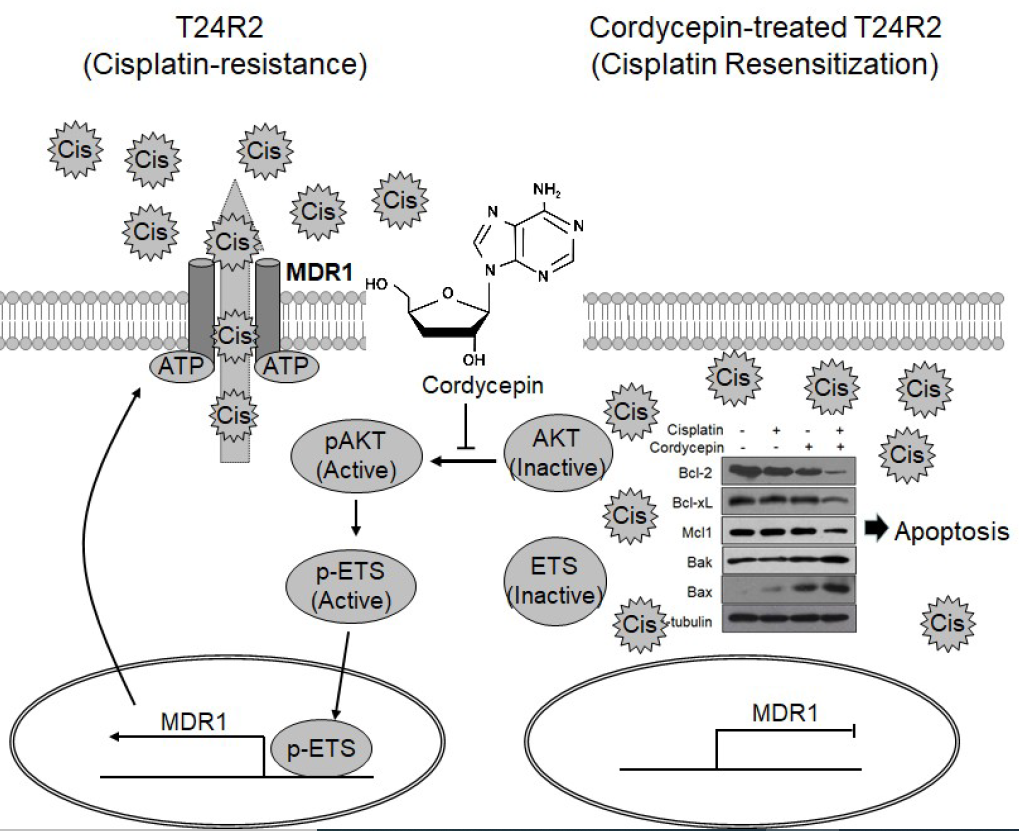Resistance of tumor cells to anticancer drugs is a major obstacle in tumor therapy. In this study, we investigated the mechanism of cordycepin-mediated resensitization to cisplatin inT24R2, a derived T24 cell line. Treatment with cordycepin or cisplatin (2 g/ml) alone could not induce cell death of T24R2, but combination treatment of these drugs significantly induced apoptosis of the cells through mitochondrial pathway including depolarization of mitochondrial membrane, decrease of anti-apoptotic proteins, Bcl-2, Bcl-xL, and Mcl-1, and increase of pro-apoptotic proteins, Bak and Bax. . High expression of MDR1 was the cause of cisplatin resistance in T24R2, and cordycepin significantly reduced MDR1 expression through inhibition of MDR1 promoter activity. MDR1 promoter activity was dependent on a transcription factor, Ets-1, in T24R2 cells. Although there is a correlation between MDR1 and Ets-1 expression in bladder cancer patients, active Ets-1, Thr-38 phosphorylated form (pThr-38), was critical to induce MDR1 expression. Cordycepin decreased pThr-38 Ets-1 level through inhibition of AKT, which reduced MDR1 transcription and induced the resensitization of T24R2 to cisplatin. The results suggest that cordycepin effectively resensitizes cisplatin-resistant bladder cancer cells to cisplatin, thus serving as a potential strategy for treatment of anti-cancer drug resistant patients.

